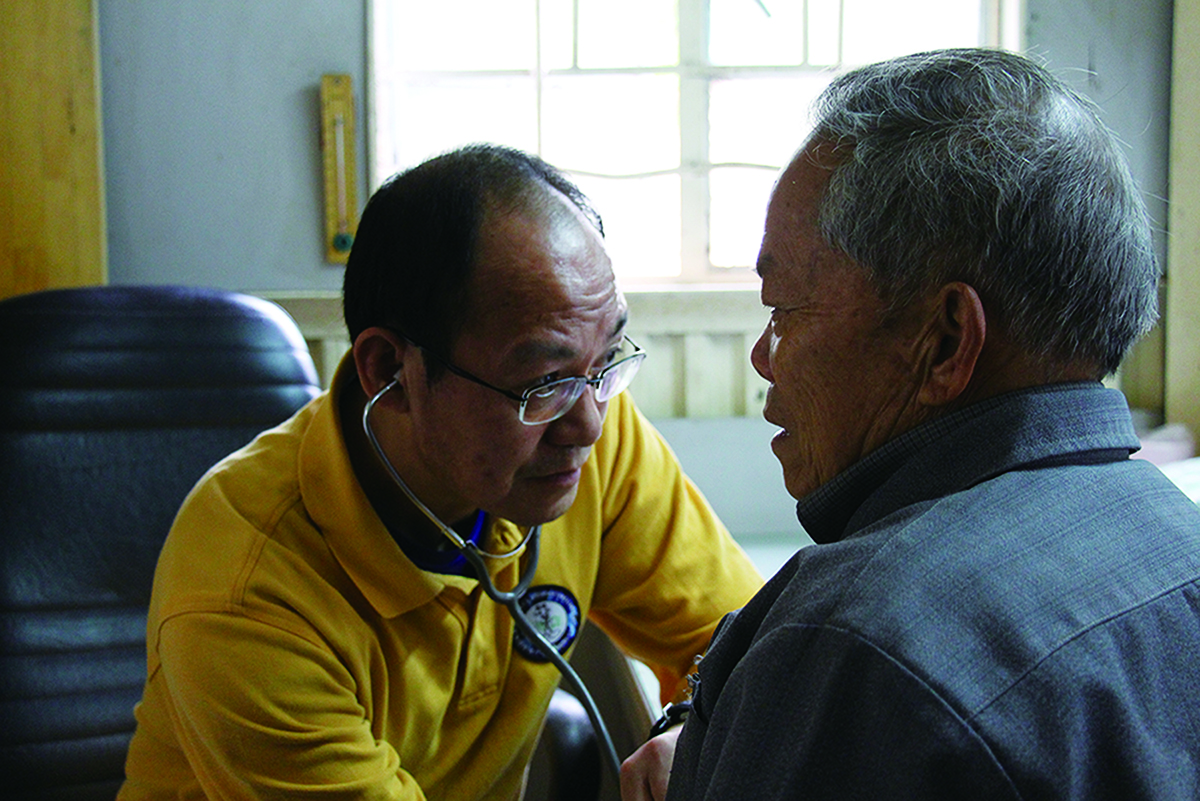Veteran of numerous overseas humanitarian missions tells of heartbreak over Hong Kong
By Karen Yu
Most of us are brought up to be kind and always lend a helping hand to others, and most of us find it is easier said than done. Not so Au Yiu-kai, a 56-year-old consultant surgeon at Kwong Wah Hospital, who has made it his mission in life to do both. Au has saved lives in conflict zones as a volunteer for the Hong Kong Red Cross and Médecins Sans Frontières (MSF). Closer to home, he founded the Hong Kong Wheelchair Aid Service, a wheelchair repair and rental service in 1997.
Au’s resolve to become a doctor and his devotion to service are, in large part, motivated by the loss of his mother to kidney disease when he was a young boy and his brother to cancer when he was a medical student. His commitment is also driven by his Catholic faith. Today, serving people is what makes him happy and he smiles readily when recalling the stories he has encountered along the way.
Au first started to help the needy in 1987. He launched a monthly free clinic service for the residents of a former coal mining village in Ma On Shan. “Wherever there is need, I will continue to do it,” he says. He has kept his promise to his elderly patients there – most of them are retired miners and their families – for 28 years.
In 2002, Au’s personal mission to help the underprivileged took a different turn – it went global. A doctor friend attended a talk+ by the Hong Kong Red Cross to recruit volunteers for medical missions overseas. He suggested Au had the right skills for the job and Au decided to give it a go.
That is how he ended up working in a hospital in Kenya, operating on the war wounded from South Sudan. Since then, he has been volunteering for the Hong Kong Red Cross and MSF in many conflict and disaster areas. Recognition of this work won him the Hong Kong Humanity Award in 2009.

The year 2002 does not just mark the beginning of Au’s involvement in overseas humanitarian medical service. It also marks a turning point in Au’s perspective on the medical profession and his place in it. Most notably, it affirmed his belief in the importance of traditional surgical skills and his own persistence in practising those skills.
Au says that since 1990, there has been a growing use of high technology in medicine and a trend towards conducting minimally invasive surgery in Hong Kong. But having spent his whole working life in no-frills public hospitals, Au trained in and uses traditional and basic surgical techniques.







































